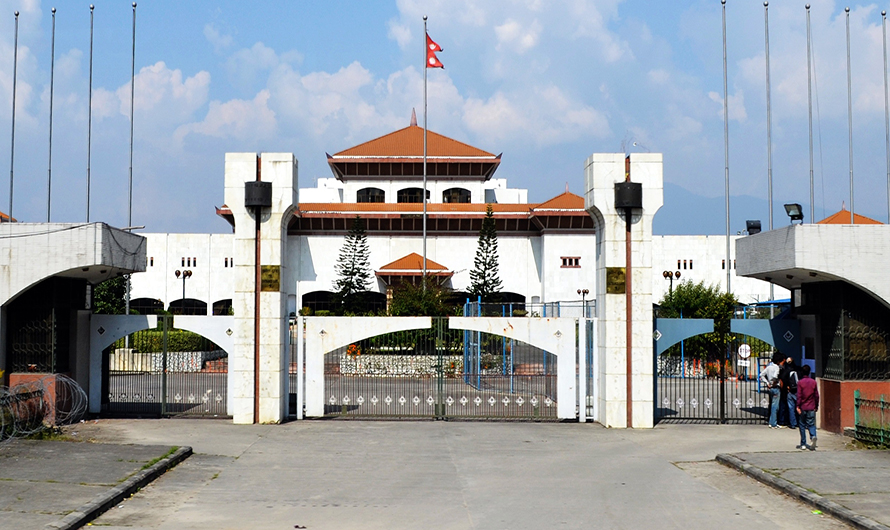0%

Parliament Building at New Baneswor in Kathmandu/File Photo
KATHMANDU: Even though the Election Commission (EC) is yet to submit the final report on the completion of the general election to President Bidya Devi Bhandari, political parties have intensified internal discussions to form a new government.
Major political parties, including the Nepali Congress (NC) and CPN-UML, are particularly engaged in discussions with other parties as none of the political parties succeeded in garnering the required majority votes in the November 20 election.
However, the process of government formation will proceed formally only after the Election Commission submits the report to President Bhandari after the final result of the proportional representation (PR) comes.
It should be noted that only seven political parties crossed the 3 percent threshold to become national parties.
The Nepali Congress party has intensified discussions with other parties, mainly with the five-party coalition comprising NC, Maoist Center, Unified Socialist, Rastriya Janamorcha and Loktantrik Samajwadi Party, to form the government.
However, the CK Raut-led Janamat Party has also expressed its willingness to join the government.
While the NC garnered 89 seats, Maoist Center secured 32 seats, Janamat Party 6 seats, the Unified Socialist 10 seats, and Rastriya Janamorcha 1 seat.
The parties have already submitted the names of the PR members. The EC has asked parties to make corrections/amendments to the list of PR members submitted to the EC by Monday.
The parties will start formal meetings to form the government after the EC submits the report to the President.
It should be noted that Clause (1) of Article 93 of the Constitution of Nepal stipulates that the Parliament should be convened within 30 days from the date of announcement of the final result of the election.
The President shall convene a session of the Federal Parliament within 30 days from the date of the announcement of the final result of the election for the House of Representatives, according to the constitutional provision.
The President will call for a new government after the Parliament meeting is convened.
According to Clause (1) of Article 76 of the Constitution, the President appoints the leader of the parliamentary party with a majority in the House of Representatives as the Prime Minister. However, since no party has won a single majority in the November 20 election, it is almost not possible for a single party to form the government.
In sub-section (2) of the Constitution, there is a provision that in the event that one party does not have a majority, two or more parties can form the government on the basis of obtaining a majority.
At least 138 lawmakers/Members of Parliament are needed to form a government in the House of Representatives which has 275 MPs.
In such a condition, the President shall appoint a member of the House of Representatives who obtains a majority with the support of two or more parties represented in the House of Representatives as the Prime Minister.
The Prime Minister appointed in accordance with sub-section (2) must take a vote of confidence in the Parliament within 30 days.
On the other hand, the CPN-UML, which secured 78 seats in the House of Representatives, is trying to woo other political parties on government formation.
Some UML leaders, who are close to party Chairman KP Oli, have suggested the party leadership initiate formal dialogue with the Nepali Congress and form a UML-NC coalition government.
Sources have claimed that UML leaders, mainly Oli’s confidants, are holding informal talks with leaders of Nepali Congress, Rastriya Swatantra Party (RSP), Rastriya Prajatantra Party (RPP), among others to form the government. While the RSP garnered 20 seats the RPP secured 14 seats.